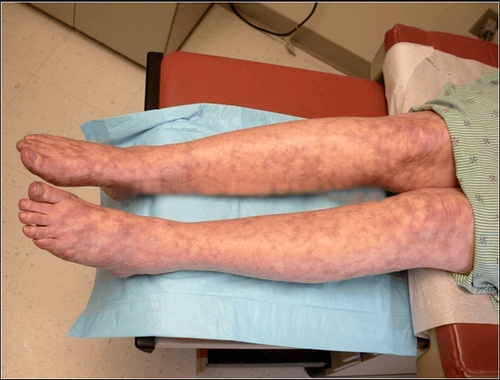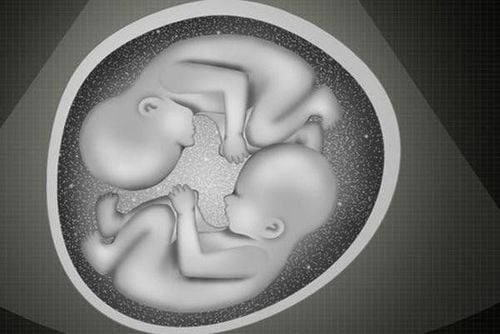This is an automatically translated article.
Posted by Doctor, Specialist II Le Thi Na - Doctor of Hematology - Laboratory Department - Vinmec Times City International Hospital
Anti-phospholipid syndrome (APS) is also known as antiphospholipid syndrome. This is a syndrome with clinical manifestations mainly of embolism, causing recurrent miscarriage in women. The disease is caused by the immune system producing antibodies against phospholipids or against phospholipid-binding protein antigenic determinants. This is also a syndrome of autoimmune diseases.
1. What is antiphospholipid syndrome? Clinical Manifestations of Antiphospholipid Syndrome
Clinical manifestations of Anti-phospholipid syndrome are very diverse, can be damaged in many organs with the main manifestations being vascular occlusion, ischemia or infarction in organs and pregnancy complications. These manifestations may occur independently or concomitantly with the primary disease (secondary anti-phospholipid syndrome).
Clinical manifestations associated with Anti-phospholipid syndrome are:
There is arterial or venous thrombosis, which can cause embolism. Pregnant women with antiphospholipid syndrome can have pregnancy complications: miscarriage, stillbirth, premature delivery, pre-eclampsia, growth retardation due to placental malnutrition. Occurrence of embolic strokes (high mortality rate). Cerebrovascular thrombosis (cerebral infarction) caused by a blockage of a blood vessel in the brain. Purple-green reticular patches on the skin, vasculitis can cause skin necrosis. Occurrence of coronary artery disease: is a dangerous disease with a high mortality rate. Heart valve disease (heart valve regurgitation, stenosis, ..) Kidney disease (renal failure, nephritis,...) Pulmonary arterial hypertension. Acute lung syndrome (acute lung injury). Atherosclerosis and peripheral artery disease. Retinopathy (eye disorders such as retinal degeneration, retinal detachment, vision loss,...) Adrenal insufficiency. Budd-Chiari syndrome, mesenteric vascular thrombosis, hepatic thrombosis. There may be complications of esophageal necrosis, gallbladder necrosis. Hearing loss. Full-blown anti-phospholipid syndrome with severe symptoms with multivascular thrombosis. SEE ALSO: What is Antiphospholipid syndrome related to miscarriage complications?

2. Indication of test for antiphospholipid antibodies
Indications for testing for antiphospholipid antibodies (anti-phospholipid -aPL) in the following cases:
Venous and/or arterial occlusion in people under 50 years of age. Vascular occlusion with a history of autoimmune disease. Prolonged APTT of unknown cause. Women with pregnancy complications, miscarriage, unexplained stillbirth. For patients with systemic lupus erythematosus, autoimmune disease: If the antibody test is negative, periodic re-testing is still needed (because of the possibility of antibody development in the future). The tests indicated are:
Endogenous anticoagulant test (mix test) Anticardiolipin antibodies type IgG and IgM Antibodies against β2-glycoprotein types IgG and IgM Lupus anticoagulant (LA) Antinuclear antibodies ( ANA) These tests are considered significant when they are positive at least 2 times, at least 12 weeks apart.
Antiphospholipid syndrome or antiphospholipid syndrome (APS or APLS), an autoimmune disease, occurs when the immune system produces autoantibodies to phospholipids in the blood, thereby creating blood clots in the blood vessels. .
Please dial HOTLINE for more information or register for an appointment HERE. Download MyVinmec app to make appointments faster and to manage your bookings easily.














